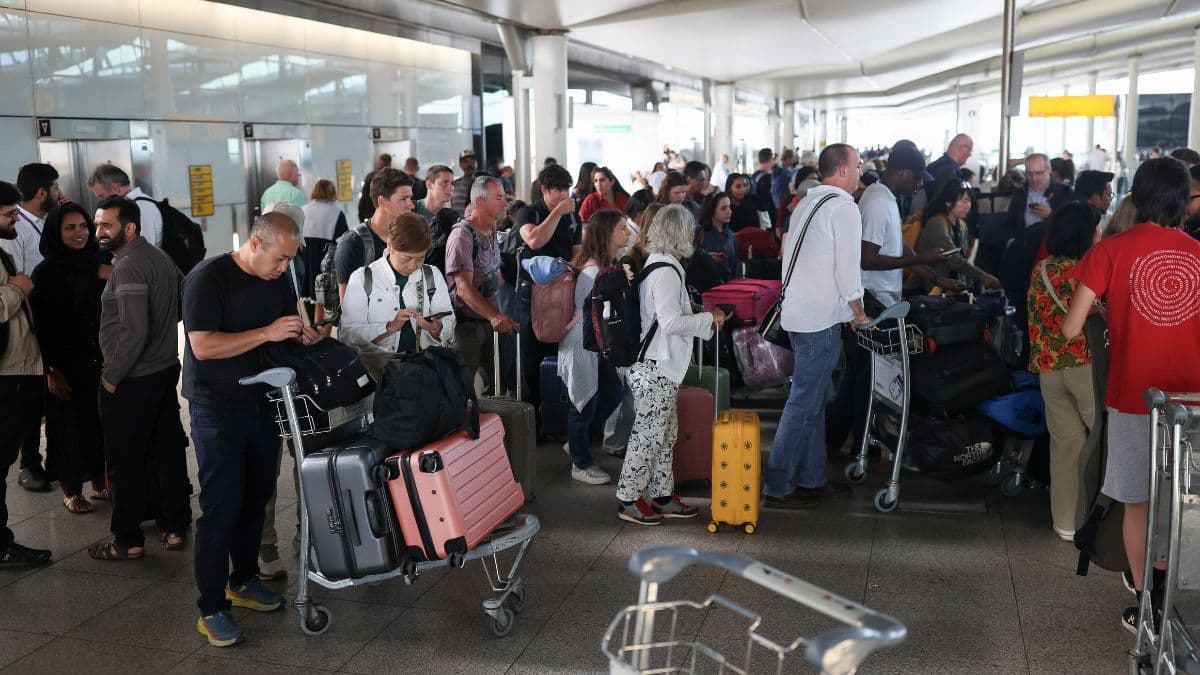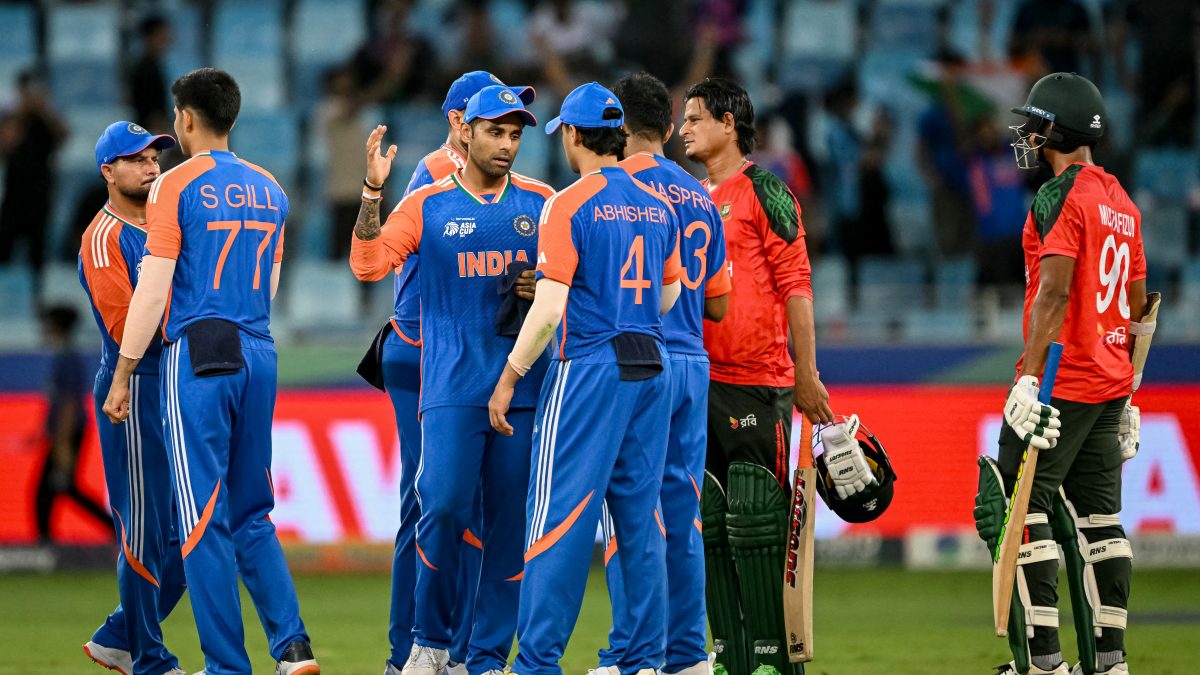Update: It has been four years since the Taliban re-occupied power in Afghanistan, toppling the US-backed Ashraf Ghani government. While Ghani fled the country, the government forces capitulated in about a week, surrendering to the Taliban fighters following a hasty withdrawal of the American troops.
Taliban imposed a harsher version of sharia, the Islamic law, in Afghanistan after recapturing power. While institutions of democracy collapsed and modern human rights denied, the women of Afghanistan bore the brunt as power changed hands. After years of progress, the status of women in the country started regressing. It has worsened in the past four years.
Women in the country live under several restrictions and bans in social, academic and economic spheres. Women rights activists have been jailed or forced into exile. But some do flag this curtailment of basic rights.
In 2024, Firstpost reached out to an Afghan human rights activist and Nobel Peace Prize nominee, Mahbouba Seraj. For decades, Seraj has been fighting for the rights of women in the country and pledges to do so till the very end.
Here’s what Firstpost reported last year from exclusive interaction with Seraj:
On October 26, the women in Afghanistan faced another brunt from the Taliban regime after they were barred from technically “hearing each other”. The Taliban’s Minister of Vice and Virtue, Khalid Hanafi, issued a new ban on women’s rights forbidding adult women from allowing their voices to be heard while praying by other adult women. While this left the Afghan women dismayed, the bizarre ban stirred headlines all around the world.
Impact Shorts
More ShortsIn an audio statement, Hanafi emphasised that adult women must refrain from performing “Takbir,” which means Islamic prayer or reciting the Quran aloud in the presence of other women. Now, women in Afghanistan were already barred from speaking in public, and the new sets of draconian regulations make many wonder how a significant chunk of Afghanistan’s population lives without a voice.
In an exclusive conversation with Firstpost, Afghan women’s rights activist Mahbouba Seraj shared her take on the latest ban and questioned the international actors forging ties with the Taliban. The last time Firstpost spoke to the Nobel Peace Prize-nominated activist, Seraj, expressed hopes for having talks with the regime. But as she presents a grim image of what is happening in the country, she wonders if there is a way out of the mayhem.
‘I have to go back and restart the Quran because this is new to me’
When asked to elaborate on the new ban, Seraj expressed her surprise over where the Taliban are coming up with such restrictions. She questioned the regime’s interpretation of the Quran and insisted that she had to go back and re-read the sacred text to find a bizarre rule like this.
“We did not know that we were not supposed to be a part of everything Allah said to the Muslims, because we are women. I thought that the Qur’an and Allah said that men and women are equal, the only difference between them is the level of their taqwa and the level of their prayers, and being a good human being to Allah and being a good Muslim,” the 76-year-old activist told Firstpost.
“Now I have to go and restart the Qur’an from the beginning to the end, and I would like to find out where all of this is written, and how come during these 1,400 years of Islam, we didn’t know anything about it. How come suddenly the Taliban came up and found out about this” she questioned.
Seraj expressed her frustration on how the voices of the Afghan women are being considered “haram” in their own country.
“According to the Taliban right now, our voices are haram, we cannot breathe in a loud voice, to other women, the Qur’an, nor the hadith, nor anything, because it’s all haram. These are the things that the Taliban are coming up with. I have no idea what the meaning of this is and where they are coming up with all of this. We are stuck”.
Difference between the Taliban of today and the Taliban in past
While Seraj mentioned that the core ideology of the Taliban hasn’t changed, there still remains a difference between the Taliban that came to power in Afghanistan in the late 1990s, and the regime that took over in 2021. “The Taliban from one point of view, haven’t changed because that’s the ideology. Ideologies usually don’t change easily like this. The ideologies usually stay the same and the Taliban is also like that,” Seraj explained.
“But what has changed is really even amongst the Taliban right now, they are actually teaching the younger Taliban about these new edicts. They are teaching them about things that are apparently new to them too. Now, where they have come up with all of this, how it is allowed by the Islamic world to come up with things like this and say that the Qur’an said so, this is what is a question to me,” she said.
“Why was it not given as a direction to the Islamic world, to the men and women of the Islamic world? Why is it something that has come up now? And what is the meaning of it? And if it is not true, how come it’s allowed? Because the words of the Qur’an cannot be changed,” she remarked, insisting that one has to dive deep into the matter.
How Women in Afghanistan are surviving the horror
As Seraj walked us through what the daily lives of Afghan women look like, she mentioned that the Taliban usually implement their policies in peripheral provinces, and the restrictions later reach Kabul. When asked how a woman with no man in the family goes by the day on a regular basis, with all the restrictions, the Nobel Peace Prize-nominated activist said that the brunt of these restrictions is mainly felt in the provinces.
“These things are being felt very strongly in the provinces of Afghanistan, like Kandahar, Helmand, Zabul, etc. The Taliban don’t implement these laws in the capital right away. They are implementing in other parts of Afghanistan first, and then they come to the capital,” she said.
Seraj pointed out how the Taliban regime has banned living beings from being shown on television. “Our televisions are all shutting down, and they are going to make the programmes into radio. So now this is going to come and go into effect in Kabul very soon,” she explained.
“It is being implemented in provinces; it hasn’t come to Kabul yet. And when it enters Kabul, that’s when the trouble starts. So we don’t know what we are going to do,” she said.
Seraj also spoke about the struggles women doctors are facing in the country. “They’re not talking to male counterparts; there are no males around them. So the only ones that women have around them are female doctors. There are women doctors, women nurses,” she told Firstpost.
“If they are not there, we’re all going to die anyway, because there is nobody to look after us. That’s another way of taking care of this problem,” she lamented.
The surge in suicide rates and cases of depression
The stringent restrictions imposed by the draconian regime are driving many into depression and suicidal thoughts. There has been a sharp spike in cases of suicide in the country, not only among women but also among men. “I just heard that two days ago that there was a young girl who killed herself, 20 years old in Kabul, it is unbelievable,” Seraj recalled.
“It is becoming a lot more common among young men and women. There is no money, there is no work, there is no hope, there are no possibilities. I mean, how do we go about living? I don’t understand that.”
“The psychological profile of Afghan women all over is so bad. They are so depressed, it is becoming hard to live,” she added.
Voice of the voiceless
Things are getting worse in Afghanistan as the day goes by. While the Taliban is considering banning the recording of visual images of any living being, they are refusing to cooperate with the UN mission that is operating in the country. In this situation, what is the way ahead and how to navigate the regime which refuses to be more open? Seraj insisted that neither she nor the UN has the answer to this dilemma. “I don’t think the UN knows it. I don’t think I know it. I don’t think we know it,” she said. “I don’t think there is any direction or there’s any plan or anything like that. It’s just that we are stuck when we are,” she lamented.
However, Seraj, who has been advocating for Afghan rights for decades, has not let go of the hope for change. “We cannot, we cannot start fighting each other with a gun and accept or expect, sorry, expect that the result is going to be peace and we’re going to understand each other. It’s not going to happen that way. We have to talk to each other because that’s what God has given us, you know, intelligence has given us a tongue, which is the what we can use our intelligence with and convey our messages,” she told Firstpost.
“Well, the only thing I’m putting back on you as a young reporter, please report the things that you hear and what we tell you, because I don’t know how much longer my voice is going to be heard. I honestly don’t. And to tell you the honest truth, my voice happens to be one of the voices in Afghanistan.”
“There are not that many like me as a woman who can tell you the truth of what is exactly happening here. So spread it, spread it around with all the courage in the world to the people who don’t know exactly what is happening in my land. I want the world to know. And I’m just praying for some kind of an answer for something that I don’t have any answer for anymore,” she concluded. While the Taliban rub shoulders with dignitaries around the world, women in Afghanistan are still looking for people around the world who raise their voices for the voiceless.
This is the first of the two-part interview with the Nobel Peace Prize-nominated Afghan activist Mahbouba Seraj. The second part will dive into the Taliban’s growing ties with several international actors, especially China. Watch out.


)

)
)
)
)
)
)
)
)



